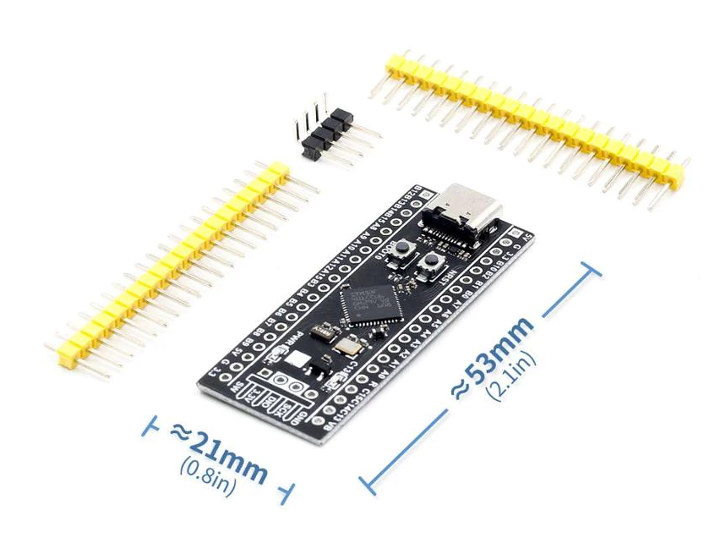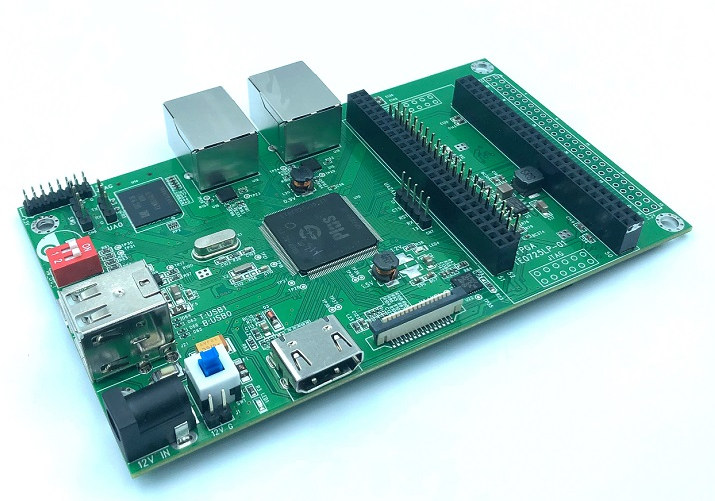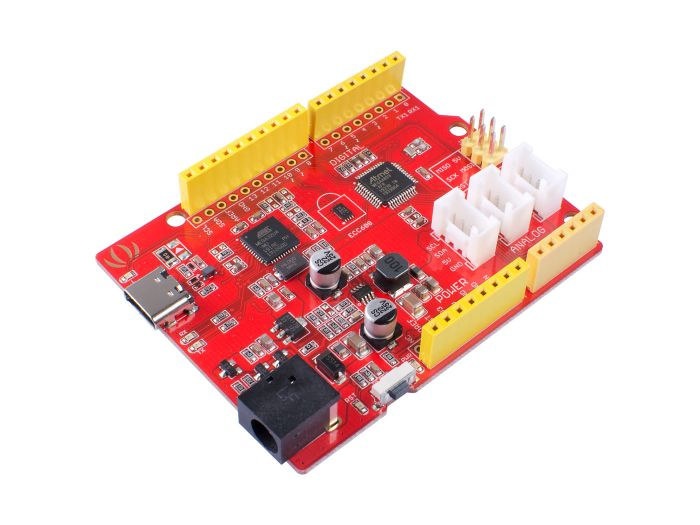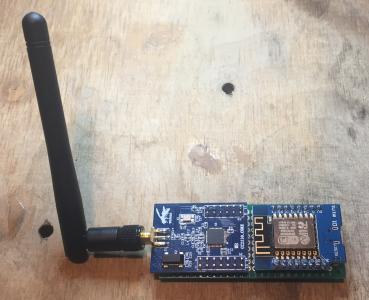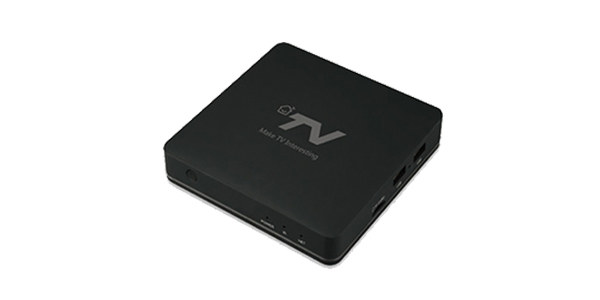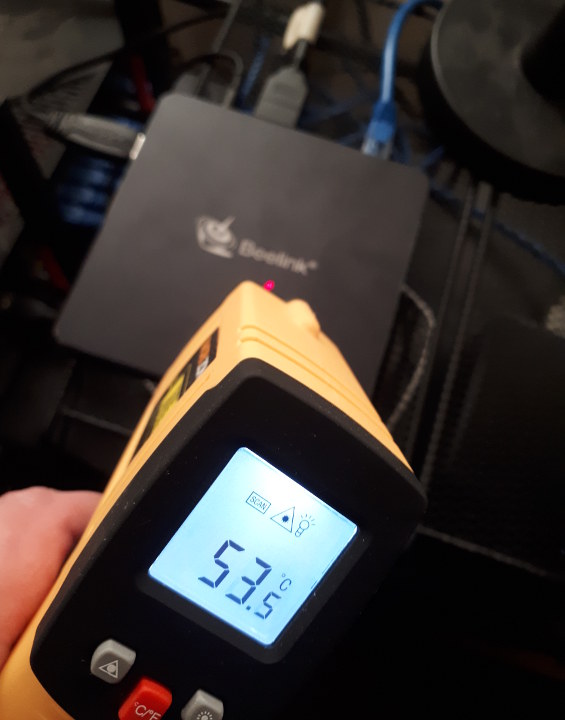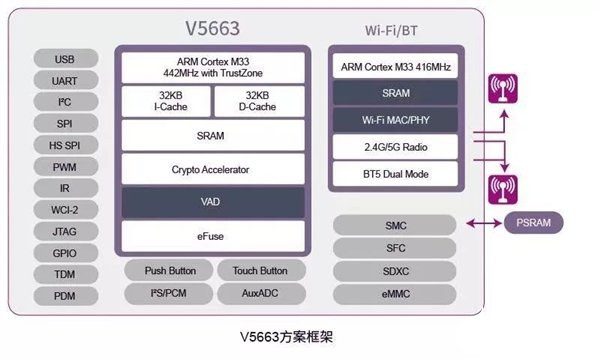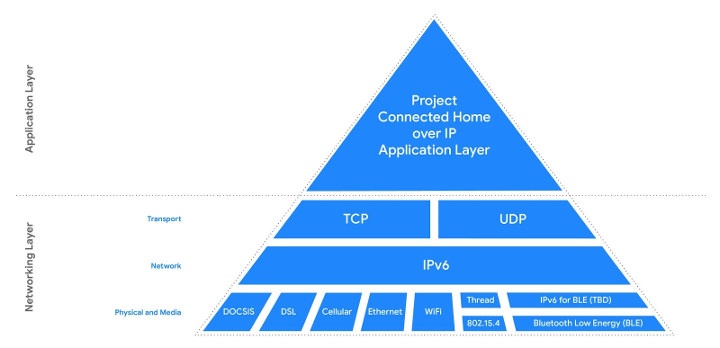STM32 “Blue Pill” is a popular and cheap (>$2) development board based on STMicro STM32F103C8T6 Arm Cortex-M3 microcontroller and programmable with the Arduino IDE. I’ve just been informed that the board got an upgrade of sorts with a “Blue Pill 2” board featuring either STM32F401CCU6 or STM32F411CEU6 Arm Cortex-M4F microcontroller, and a USB Type-C port for power and programming. It’s black, so instead, I’ll call Black Bill as some others appear to do. Specifications for the Blue Pill & Black Pill boards (new features in bold): MCU (one of the other) STMicro STM32F103C8T6 ARM Cortex-M3 MCU @ 72 MHz with 64KB flash memory, 20KB SRAM. STMicro STM32F401CCU6 Arm Cortex-M4F MCU @ 84 MHz with 256 KB flash, 64KB SRAM STMicro STM32F411CEU6 Arm Cortex-M4F MCU @ 100 MHz with 512KB flash, 128KB SRAM Storage – Footprint for SPI flash USB Blue Pill – 1x micro USB port for power and programming […]
Banana Pi BPI-F2S Industrial SBC Launched for $58 with Linux 4.19 based Debian or Fedora OS
Last month we covered Banana Pi BPI-F2S single board computer (SBC) for industrial, IoT, and smart audio application that was powered by the intriguing SunPlus SP7021 “Plus1” processor featuring four Cortex-A7 cores, one ARM9 ARM9 real-time core, and one 8051 I/O controller core, as well as up to 512MB built-in DDR3 RAM. At the time, the board was not available, and we had limited information about software support, except the company would provide a Yocto-based Linux distribution. The good news is that you can now buy Banana Pi BPI-F2S industrial SBC on Aliexpress for $58 and Taobao for 390 RMB, and the company released source code and OS images for the board. Here’s a reminder of Banana Pi BPI-F2S specifications: SoC – Sunplus SP7021 “Plus1” with a quad-core Cortex-A7 processor @ 1.0 GHz, one Arm A926 microprocessor, an 8051 core to handle I/Os, and 128MB or 512MB DDR3 DRAM. Storage […]
Seeeduino Crypto Board Combines Microchip ATmega4809 MCU and ECC608 Crypto Chip
With the advance of IoT, security has become critical since devices are often connected to the Internet. There are several ways to improve security and one of them is to implement hardware security via crypto chips. One of those chips is Microchip ECC608 (aka ATECC608A) secure element which we previously found in Linux based hardware such as USB Armory MK-II USB Linux computer, and the official Arduino Nano 33 IoT Board. Seeed Studio has now introduced a new Arduino compatible board with Microchip ECC608 crypto chip: Seeeduino Crypto board powered by a Microchip ATmega4809 8-bit AVR MCU. Seeeduino Crypto specifications: MCU – Microchip ATMEGA4809-AFR 8-bit AVR microcontroller @ 16 MHz with 48KB flash, 6,144 Bytes RAM USB – 1x USB Type-C port Expansion Arduino Uno headers with 6x analog inputs, 14x digital I/O pins, 5x PWM 2x I2C Grove headers 1x UART Grove header HW Security – Microchip ECC608 secure […]
Tasmota Open Source ESP8266 Firmware Now Supports Zigbee Connectivity
Sonoff-Tasmota is a popular open-source firmware designed to run on ESP8266 hardware for home automation projects. It was initially designed to run on devices from ITEAD Studio Sonoff family but now supports more products, boards, and modules from other brands such as Shelly, Wemos, Blitzwolf, and others. So the first news is that the project has recently been renamed from Sonoff-Tasmota to just Tasmota, and documentation has been moved from Github Wiki to Github.io. Tasmota Zigbee Support A piece of more important news is that Tasmota now supports Zigbee. More specifically, the Z2T (Zigbee to Tasmota) concept allows you to make your own Zigbee to WiFi bridge by combining Z-Stack-firmware on CC2530 and Tasmota firmware on ESP8266 / ESP82xx hardware. Basically all you need is ESP82xx hardware connected to a Texas Instruments C2530 based Zigbee device over a serial. Note that C2531 based device won’t work since they are connected […]
SDMC DV8919 Amlogic S905X4 Android TV 10 TV Box Supports AV1 Decoding
We’ve previously covered several TV box & set-top box SoCs with support for the royalty-free AV1 video codec including Broadcom BCM7218X SoC, and Amlogic S805X2, S905X4, and S908X processors. But so far, apart from an AV1 demo on the RTD1311/RTD1319 development board (Pymparticle EVB?), and new about Technicolor Jade STB, I had not really seen AV1-capable TV boxes so far. SDMC DV8919 appears to be the first Amlogic S905X4 TV box on the market and one of the first running the recently released Android 10 on Android TV OS. SDMC DV8919 specifications: SoC – Amlogic S905X4 quad-core Arm Cortex-A55 processor @ up to 2.0 GHz with Arm Mali-G31MP2 supporting OpenGL ES3.2, Vulkan 1.1 and OpenCL 2.0 System Memory – 2GB DDR memory (options: 1GB or 4GB) Storage – 8GB eMMC flash (options: 16GB, 32GB, 64GB), MicroSD card slot Video Output – HDMI 2.1 up to 4K @ 60+Hz with CEC […]
Beelink T45 Review with Windows and Linux, and Tweaking BIOS Power Limits
[Update December 23, 2019: We’ve been informed by Beelink that the T45 has been updated to the 6W Celeron N4200 processor instead, and the system is now cooled with a fan. The model reviewed in this post is the fanless version with a 10W Intel J4250 processor, which was never sold] [Update January 30, 2020: We’ve now posted a review of the new model at Beelink Gemini T45 Pentium N4200 Mini PC Review] Beelink have further extended their ‘Gemini’ range of mini PCs by adding the T45. This is a passively cooled mini PC that is effectively a companion to the J45 as it again uses the slightly older Apollo Lake Intel Pentium J4205 CPU which is a quad-core 4-thread 1.50 GHz processor boosting to 2.60 GHz with Intel’s HD Graphics 505. Although the T45 is a ‘NUC’ style mini PC physically consisting of a 119 x 119 x 17.7 […]
UNISOC V5663 Arm Cortex-M33 AIoT SoC Comes with 802.11 b/g/n/ac WiFi 5, Bluetooth 5.1
UNISOC has launched a new processor for AIoT (Artificial Intelligence + IoT) applications with V5663 dual-core Cortex-M33 processor, supports for dual-band WiFi 5, Bluetooth 5.1, and audio features such as a voice activity detector and microphone array support which should make it ideal for smart speakers, and other smart audio applications. UNISOC V5663 WiSoC specifications: CPU Arm Cortex-M33 processor @ 442 MHz with TrustZone, 32KB I-cache, 32KB D-Cache for application code Arm Cortex-M33 processor @ 416 MHz for WiFI and Bluetooth Memory – Built-in SRAM + external PSRAM interface Storage – eMMC, SDXC interfaces Connectivity – Dual-band 802.11 b/g/n/ac WiFi 5 2×2 MIMO Bluetooth 5.1 dual-mode (Classic + LE) Mesh Networking for WiFi and Bluetooth Indoor Positioning – WiFi RTT, Bluetooth direction finding (AoD / AoA) Audio – Voice Activity Detector (VAD), PDM and I2S/PCM interfaces Peripherals: USB 2.0 / 3.0, eMMC I2C, SPI, HS SPI, UART GPIO, PWM IR […]
Project Connected Home over IP (CHIP) Working Group is Backed by Google, Apple, Amazon, and the Zigbee Alliance
Amazon, Apple, Google, and Zigbee Alliance have partnered to create Project Connected Home over IP (CHIP) working group aiming to develop a royalty-free, Smart Home standard to increase compatibility among products, and with security at the forefront. The new standard will be separate from Zigbee 3.0 / Pro, and Zigbee Alliance board member companies such IKEA, Legrand, NXP Semiconductors, Resideo, Samsung SmartThings, Schneider Electric, Signify (formerly Philips Lighting), Silicon Labs, Somfy, and Wulian will also join the CHIP working group and contribute to the project. The standard specified by Project Connected Home over IP will rely on existing technology from the networking layer including TCP/UDP transport protocol, IPv6 network and various physical & media standards such as WiFi, Ethernet, Bluetooth LE, Cellular, 802.15.4 and others. Instead, it will define what happens at the application layer level with the following points of focus: End-to-end data security and privacy among in-home and […]


